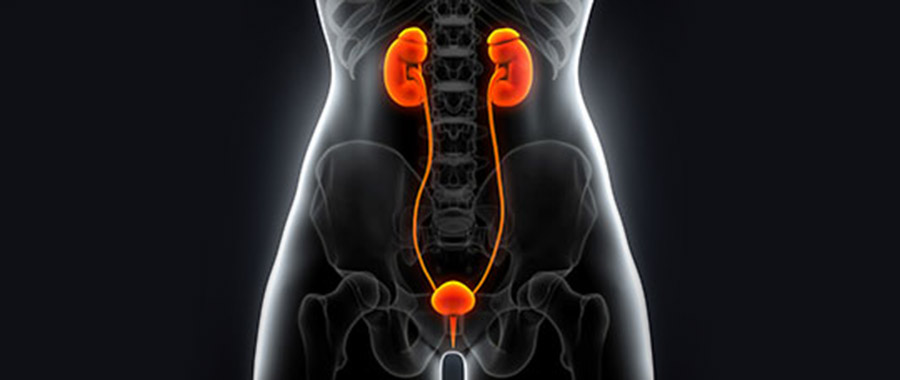
Urinary problems are more common in women as compared to men. According to the research done it has been found that 1 in 2 women experience some urinary problems during their lifetime. The most common urinary problems include Urinary tract infection, Urinary incontinence, kidney stones, stress incontinence.
Urinary tract infection
Urinary tract infection (UTI) is the most common infection in women which affect the bladder, the kidneys and the tubes connected to them.
Causes of UTI
Mostly UTIs occurs when the urinary tract gets infected by bacteria, in most of the cases the bacteria such as E. coli from the large intestine enters the urinary tract through the urethra. For instance it might happen while wiping your bottom or having sex. The bacteria continue to spread to the bladder, and if not treated on time they continue further to infect the kidneys.
Symptoms of UTIs
To identify a UTI, keep an eye for the following symptoms:
- A burning sensation while urinating
- A frequent or intense urge to urinate
- Feeling as though you’re unable to empty your bladder fully
- Pain or discomfort when urinating
- Cloudy, dark, bloody, or foul-smelling urine
- Feeling generally unwell, achy and tired
Treatment
UTIs are generally treated with a short course of antibiotics tablets or capsules for 3 days.
In certain cases it might be longer based on the case. The symptoms normally pass away within 3-5 days of the treatment, but it is advised to complete the course even if one feels better. You need to consult your doctor immediately if the condition doesn’t improve and increases or returns after treatment.
Urinary incontinence
Urinary incontinence is the involuntary leakage of urine; in simple terms, it means a person urinates when they do not want to. This issue can be temporary or permanent and has affected millions across the world. It is a result of the various problems in the urinary tract. There are several types of urinary incontinence, but the most common are:
Stress incontinence
the leakage due to activities that apply pressure to a full bladder like Coughing, Sneezing, Laughing, Running, Lifting. Leakage stops when the stress ends
Urge incontinence
Urge incontinence occurs when you have a strong, sudden need to urinate. The bladder then squeezes, and you lose urine.
Causes of Urinary incontinence
Stress incontinence is normally the case when the muscle used to prevent urination is weakened or damaged such as the pelvic floor muscles and the urethral sphincter.
Urge incontinence is usually the effect of overactivity of the detrusor muscles, which control the bladder.
Certain things that increase the chances of urinary incontinence are Pregnancy and vaginal birth, Obesity, hereditary, Increase in age.
Treatment
To begin with, the doctor suggests simple measures to check if it helps to improve the condition. Treatment for temporary incontinence can be fast, simple, and effective. If urinary tract infections are the cause, they can be treated with antibiotics. Chronic incontinence may need a variety of treatments, depending on the cause.
The various treatment options are-
- Lifestyle changes, such as losing weight and cutting down on caffeine and alcohol, improving hygiene.
- Pelvic floor exercises taught by a specialist are sometimes all a person requires for achieving continence
- Bladder training guided by a specialist
- A number of devices can also be used to strengthen muscles and prevent urine leakage.
- Medication is also used when the above techniques do not work
- Surgery is the last option left if the condition does not improve with non-invasive methods. There are many effective surgical procedures for stress incontinence. Most of them are designed to restore the bladder neck and urethra to their anatomically correct positions.
Kidney stone
A kidney stone is a solid piece of material that forms in a kidney when substances that are normally found in the urine such as calcium, oxalate, and phosphorus become highly concentrated. Kidney stones vary in size. A small stone may pass on its own, causing little or no pain. A larger stone may get stuck along the urinary tract and can block the flow of urine, causing severe pain or bleeding.
Causes of Kidney Stone
The unwanted products in the blood can occasionally form crystals that accumulate inside the kidneys. Over time, the crystals may grow up to form a hard stone-like lump. This most likely occurs when there is reduced amount of fluids intake or due to consumption of some medication that increases the levels of certain substances in the urine.
Treatment
Most of the kidney stones which are smaller in size are passed through the urine with the help of medication. Larger kidney stones may be broken using ultrasound or laser energy. Rarely, keyhole surgery may be needed to remove very large kidney stones directly.
Urinary problems during pregnancy
Women who are pregnant are prone to UTIs due to the changes occurring in the body. The hormone progesterone relaxes the muscles of the tubes (urethras) that connect the kidneys to the bladder. This slows down the flow of urine from the kidneys to the bladder. As the womb (uterus) gets bigger, it has the same effect. As a result, bacteria have more time to grow before they’re flushed out.
Symptoms of urinary problems during pregnancy
In addition to the UTI symptoms patients might also have the below symptoms
- A high temperature of 38 degrees C or above
- Constant pain in your back, pelvis or side
- Shaking and shivering
- Nausea and vomiting
- Diarrhoea
- Headache
Treatment
The doctor may conduct a urine test to find out the reason; an antibiotic course may be recommended according to your condition. The antibiotics used to treat urine infections in pregnant women are safe to take in pregnancy. They will not harm your baby.
Why Shrikhande hospital
Shrikhande IVF is one of India’s most advanced urogynecology super speciality hospital which provides state-of-the-art clinically advanced care for women who go through pelvic floor disorders and urinary problems Pelvic floor disorders happen when women have weak pelvic muscles and/or damages in the connective tissue of the pelvic organs. We have 30 years of experience, and dedicated team of expert urologist and gynaecologist, nurses and medical assistants who provide clinical expertise in the diagnosis and treatment of various pelvic floor disorders, Urinary problems and other Urogynecologic conditions as well.




 (+91) 880 557 7600
(+91) 880 557 7600
 Abhyankar Road, Dhantoli, NAGPUR-12
Abhyankar Road, Dhantoli, NAGPUR-12





